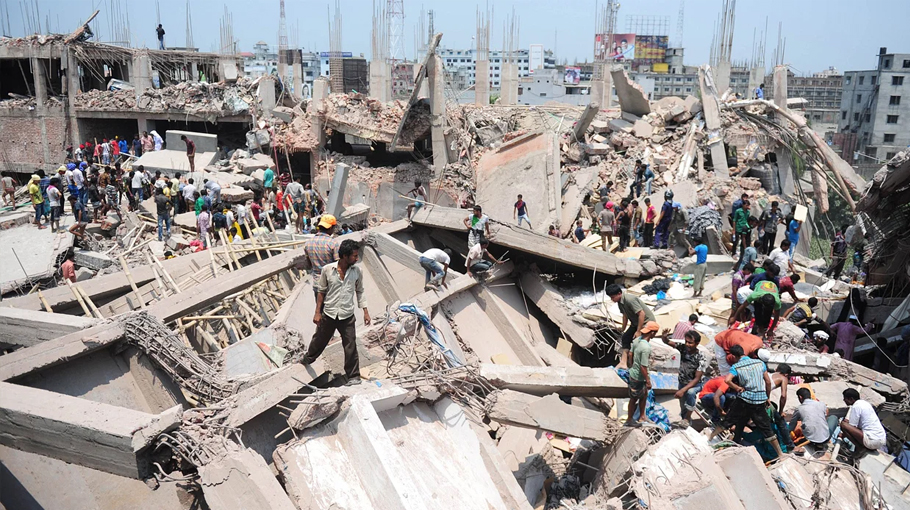US sees positive changes in workers safety in post-Rana Plaza period

US Ambassador in Dhaka Peter Haas on Thursday highlighted the progress Bangladesh has made to ensure the workers safety and rights following the Rana Plaza building collapse a decade ago.
“We have seen positive changes, particularly in the RMG export sector,” he said at a stakeholders’ roundtable to commemorate the 10th anniversary of the Rana Plaza building collapse.
“Today, garment factories are safer due to agreements among unions, global brands, and employers who worked together under the former Accord and Alliance. The government of Bangladesh has also done important work in the last decade to build a stronger body of labor laws and policies,” he said.
“Bangladesh has digitised the trade union registration process, which should help workers form unions and complete their registrations in a timely fashion. They have also digitized the labor inspection system to improve data accessibility and transparency,” he said, adding that “This is tremendous progress.”
But as the country moves to graduate from the LDC status and the government set target to be a developed country by 2041, the ambassador said more will be expected of it.
Workers safety and labor rights will need to become “ingrained in Bangladesh’s ethos”, he said.
On 24 April 2013, the collapse of the Rana Plaza building in Dhaka, Bangladesh, which housed five garment factories, killed at least 1,132 people and injured more than 2,500.
The ambassador said Rana Plaza drew the world’s attention to unsafe conditions for Bangladesh’s factory workers and raised important questions around safety and transparency in the global garment industry.
Rana Plaza was the worst-ever industrial accident to hit the garment industry. It was also the beginning of a renewed struggle to improve workers’ rights and ensure safe factories for all, he said.
“Workers stood in solidarity and said, “enough is enough” and the world agreed that such an accident should never happen again.”
The ambassador suggested three areas where Bangladesh might focus going forward.
First, we recognize the progress that Bangladesh has made. At the same time, I want to highlight the need for greater progress in industrial safety beyond the export-oriented RMG sector.
“Just last week, there was a massive fire at the popular Bangabazar clothing market in Dhaka that destroyed several thousand shops. This left a terrible mark on thousands of families, shattering their livelihoods.
“This was not an isolated incident. We are all aware of the recent explosion at the Seema Oxygen Plant, the fire at a container depot in Chittagong, and the Hashem food factory fire.
“These examples illustrate the need for stronger inspections and enforcement of labor laws across all industries and sectors. Health and safety standards must protect everyone no matter where their products end up, and no matter where they work,” said the ambassador.
Second, Bangladesh should further strengthen the right of workers to form and join independent trade unions and to collectively bargain for better working conditions.
“The rights to freedom of association and collective bargaining are enabling rights for the realization of all other labor rights.”
Third, all stakeholders must be held accountable for workplace safety and labor rights, he said.
“We are at an important moment of reimagining the future of Bangladesh as it marches towards developed country status. The full realization of labor rights will help pave the way to this future. So, let us imagine a future where workers are empowered to raise their voices against abusive labor practices through democratic independent unions,” he said.
“Where businesses protect labor rights through supply chain due diligence and accountability. And where governments ensure decent work through strong labor laws and enforcement. And where consumers choose products that are made in places where the health, safety, and rights of workers are protected,”



